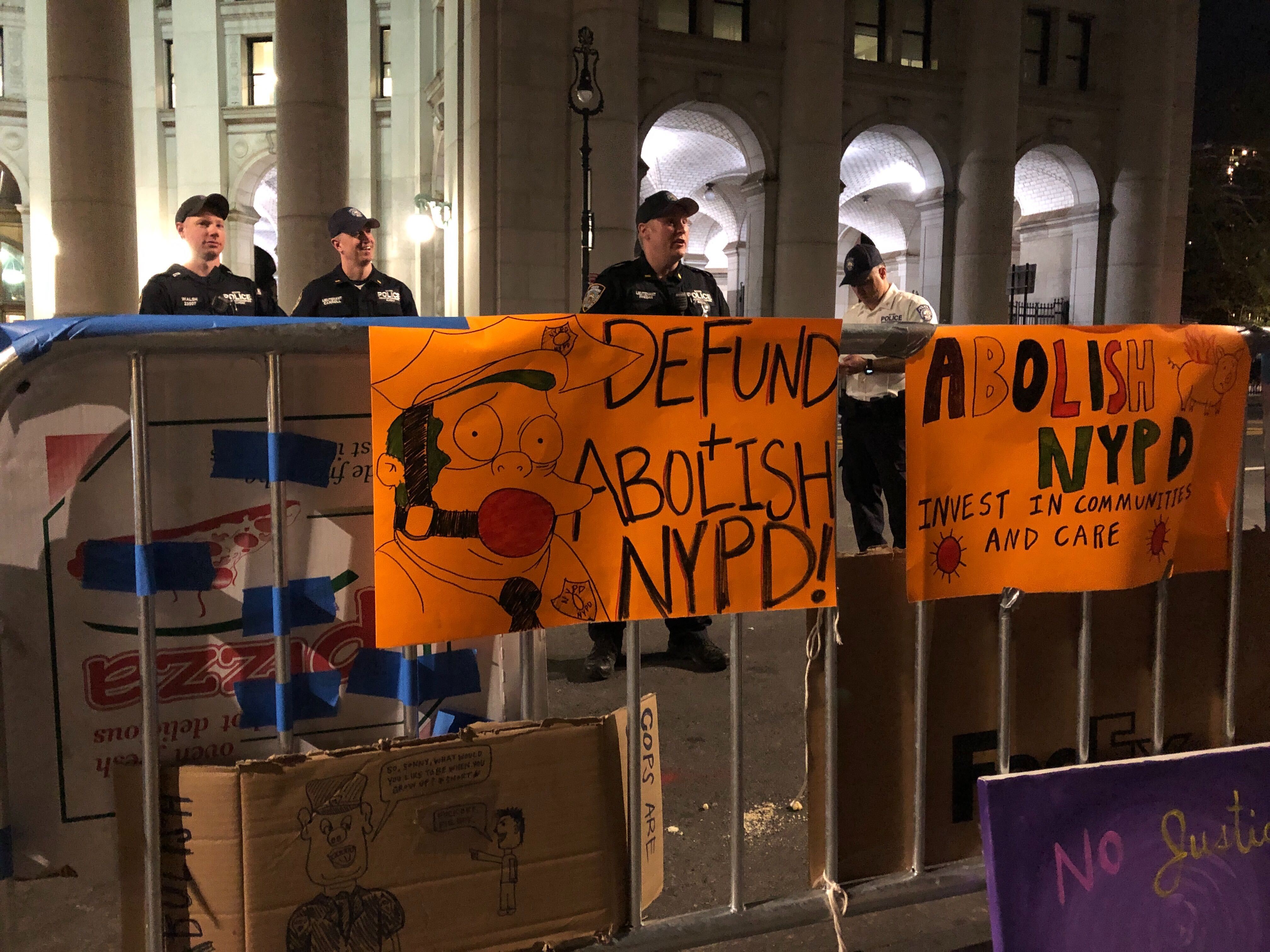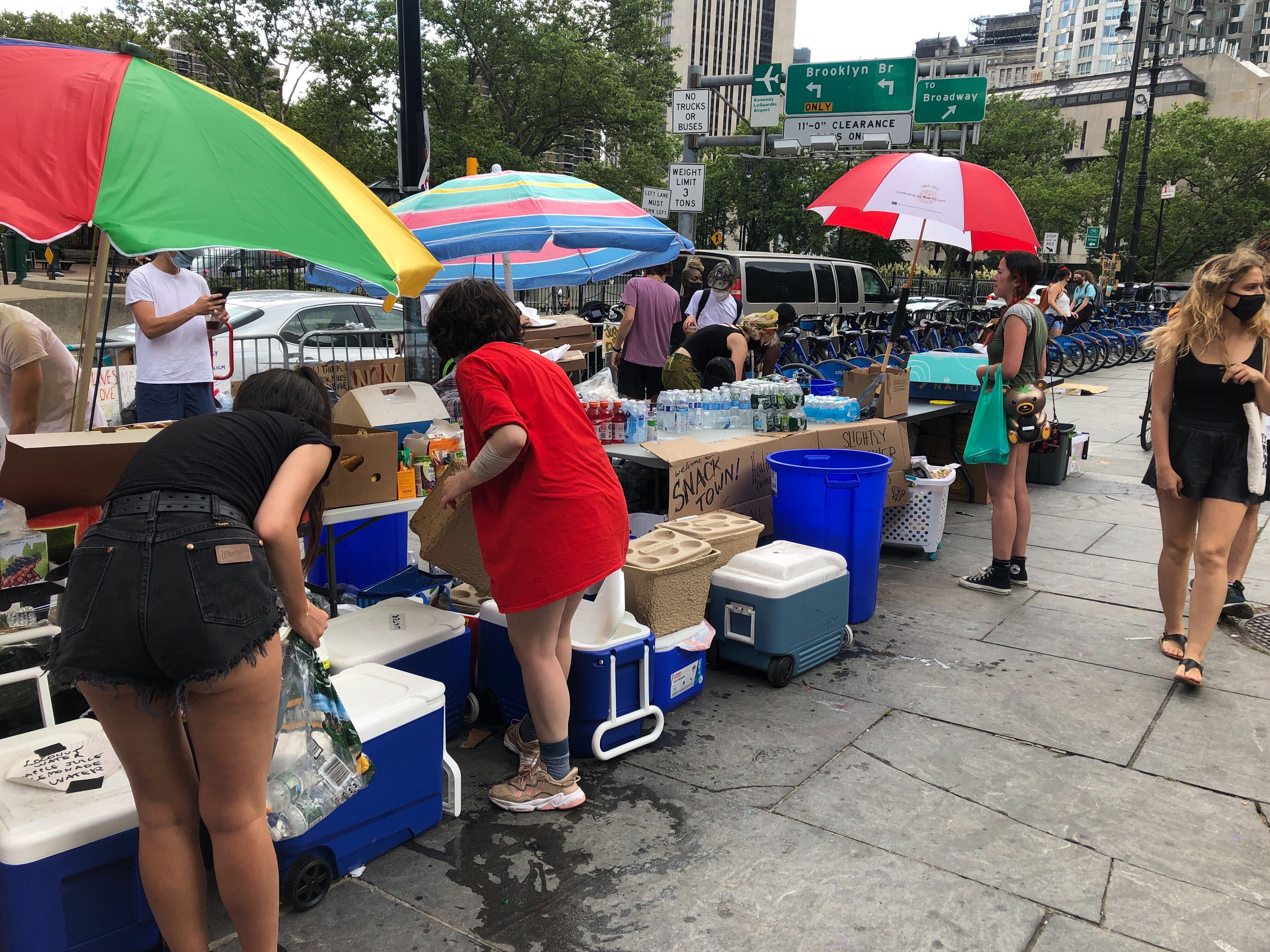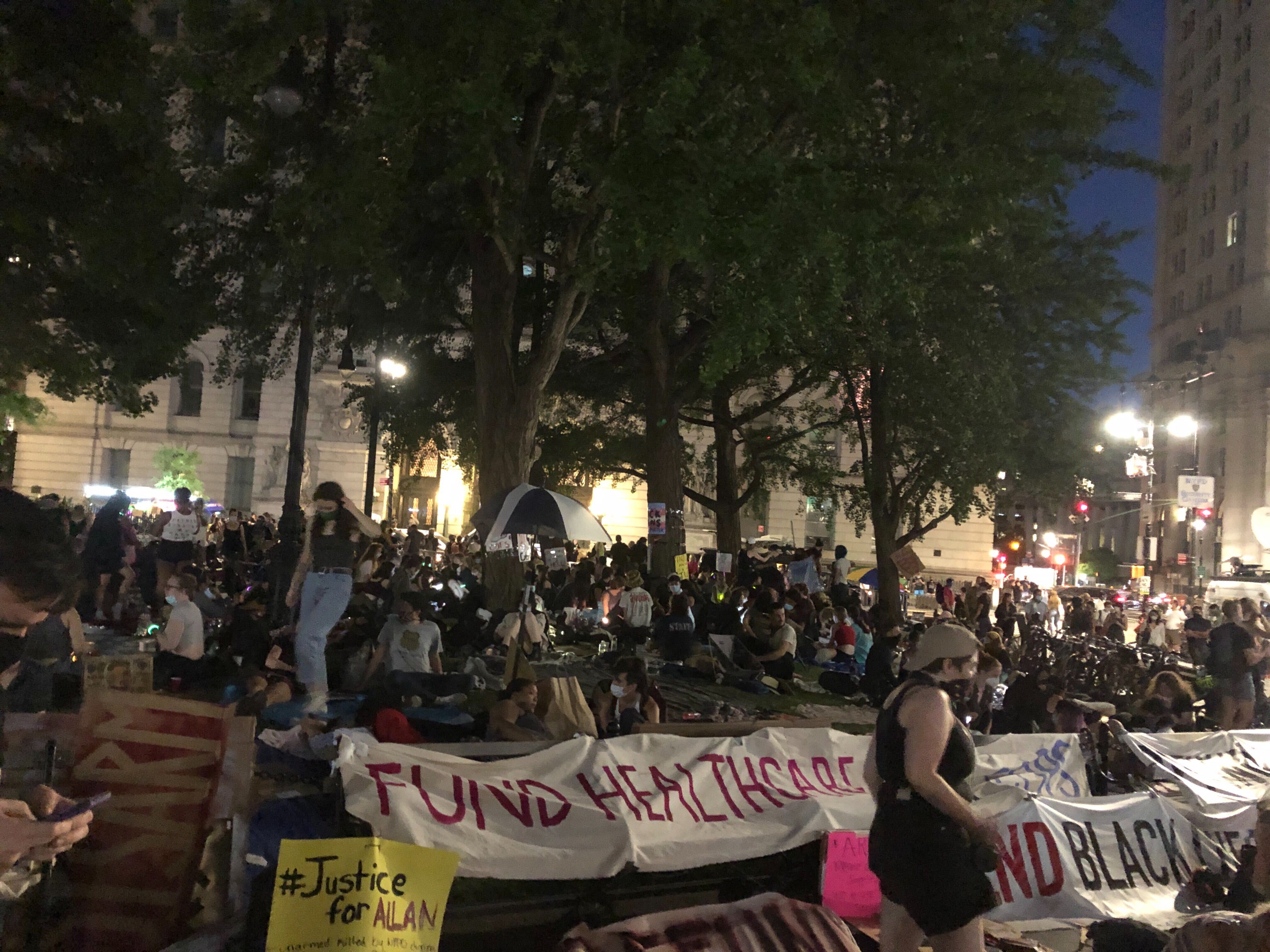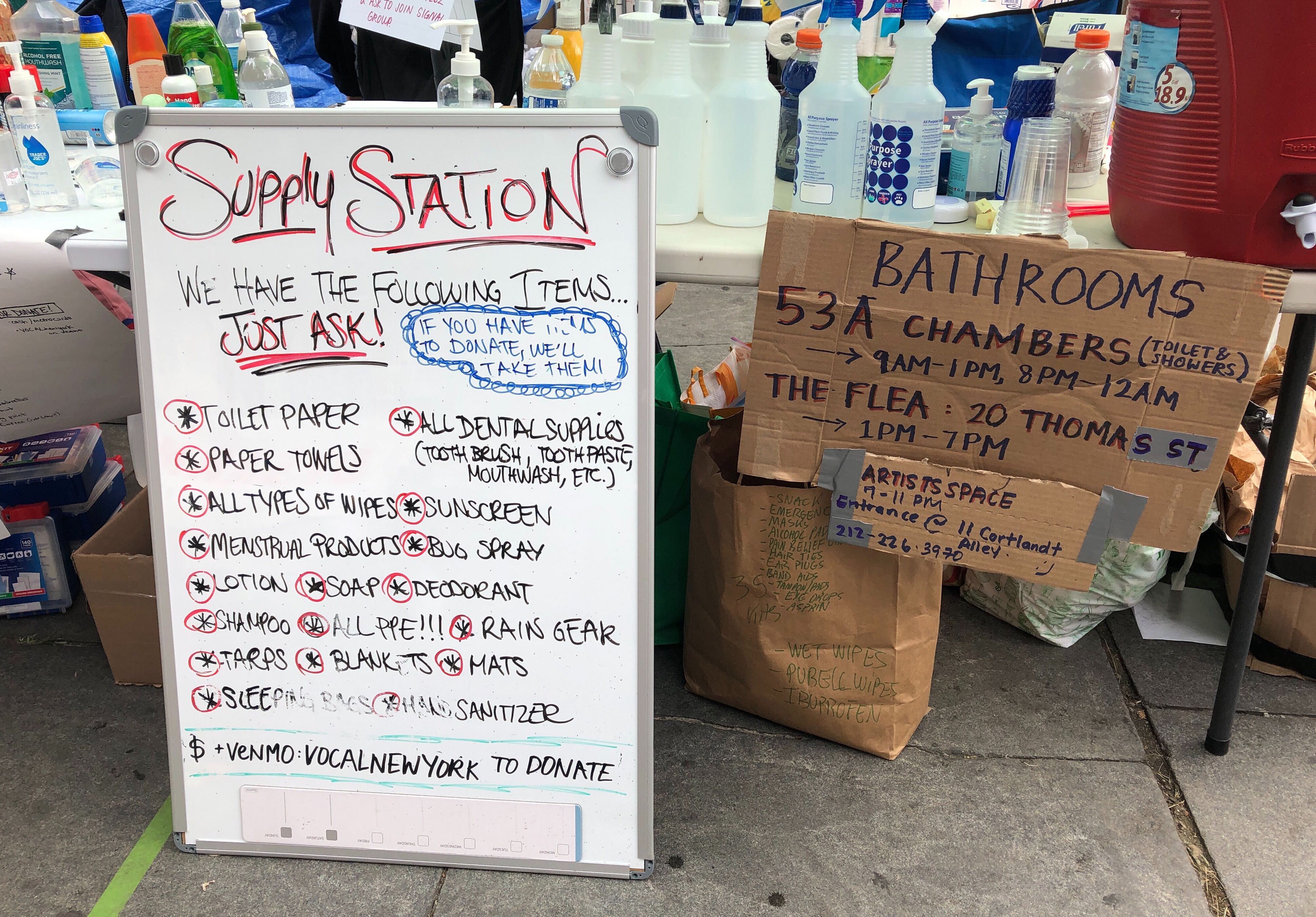In Manhattan’s City Hall Park, hundreds of people are stretched out on tarps and sleeping bags, forming a makeshift encampment that bears a strong resemblance to 2012’s Occupy Wall Street.
Every few minutes, more people arrive carrying boxes of pizza, bottled water, hygiene products, hand sanitizer, and other supplies. Free hot food is being served at tables by volunteers. Metal barricades surrounding the park are adorned with protest signs and banners calling to defund and abolish the NYPD, and street performers sing and play instruments to large crowds of protesters.
The scene feels like a culmination of the various protests and mutual aid efforts seen across the US in recent months, amid the ongoing COVID-19 pandemic and uprisings against systemic racism and police violence. The occupation began Tuesday after calls from the group VOCAL-NY, which is demanding “at least” $1 billion in cuts from the NYPD’s $6 billion budget, and the redistribution of those funds to schools, healthcare, housing, and more.
“We want to invest that money in things that will actually result in safety for all people,” Jawanza James Williams, an organizing director for VOCAL-NY, told Motherboard. “It’s important that we’re building toward abolitionist futures, and recognize that abolition is also about redefining safety to making sure that all people are safe.”


On Tuesday night, around 250 people stayed overnight at the encampment, the organizers say. By Thursday, that number had exceeded 1,000, with many others cycling in and out throughout the day. Activists are planning to remain there until June 30th, the deadline for passing the city’s annual budget.
Much like throughout the protests, activists on the ground have been supported by a steady stream of volunteers providing free food, face masks, medical assistance, legal aid, safe rides home, and more. The volunteers at city hall take shifts at tables set up around the park, direct people to the nearest open bathrooms, and distribute sleeping bags and other necessities to those staying overnight. Others have helped set up a communal People's Library, and a community garden stocked with fresh herbs.
“The energy feels really exciting and hopeful,” said blogger and author Jeremiah Moss, who stayed at the encampment overnight on Wednesday. “I want to be around that kind of optimism and that kind of positive anger. I just wanted to be here and be a part of it.”


Throughout the day, activists lead discussion groups on direct action and the differences between reform and abolition. More so than during Occupy, the activists at city hall are focused on demonstrating the world they want to live in through solidarity, mutual aid, and community care. These principles have been demonstrated throughout the pandemic, as volunteers across the country deliver groceries to neighbors, wait outside of jails to help arrested protesters, and make massive donations to community bail funds.
“People know how to create safety for their communities and for themselves. That’s what harm reduction is,” said Williams. “How do we do that on a mass scale, collectively?”
Police groups across the country have adamantly opposed funding cuts, claiming they will increase crime. But activists seek to redirect those funds to address the root causes of crime, and have outlined the steps necessary to give communities the resources and safety that police have failed to provide.
“We’re calling for a paradigm shift. We’re calling for a new framework for building and defining safety—not just for some people, but for everyone,” Williams added. “We know that police can not be a part of the solution, and that policing itself will not actually solve the problems.”
from VICE https://ift.tt/3i2CbEV
via cheap web hosting
No comments:
Post a Comment